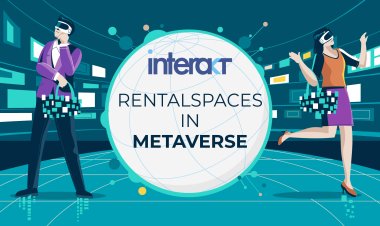How Blockchain Redefines Identity Management
In today's digital age, managing identities across multiple platforms is increasingly challenging and fraught with risks. Traditional centralized systems are vulnerable to cyberattacks and offer limited user control. However, blockchain technology presents a revolutionary solution. By decentralizing identity data and employing cryptographic techniques, blockchain enhances security, transparency, and user empowerment. This blog explores the limitations of traditional identity management systems, the advantages of blockchain-based solutions, and emerging trends in the field.
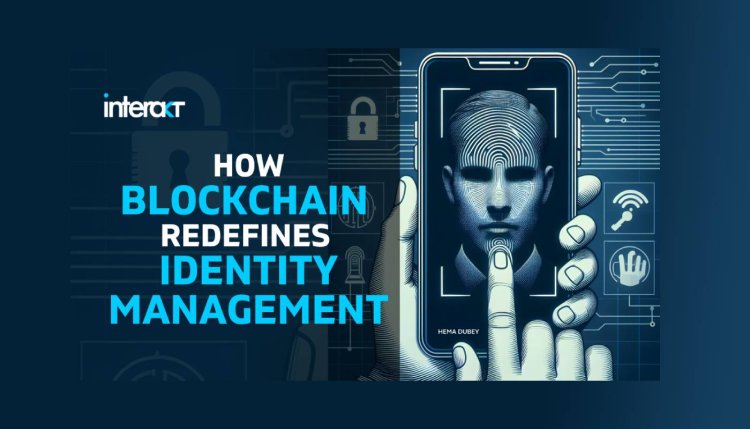
In today's digital landscape, managing identities across numerous platforms presents a significant challenge. Imagine juggling dozens of usernames, passwords, and security questions across various platforms. Now, picture a scenario where a single data breach exposes millions of these credentials, wreaking havoc on financial accounts and personal identities. This, unfortunately, is the harsh reality of the current identity management landscape.
A staggering 4.1 billion data records were breached in the first half of 2021 alone, according to the Identity Theft Resource Center. Centralized databases, the cornerstone of traditional identity management, have become a breeding ground for cyberattacks.
Fortunately, a groundbreaking technology – blockchain – is poised to revolutionize identity management, ushering in an era of enhanced security, transparency, and user empowerment.
The Downside of Traditional Identity Systems
For millennials, burdened with an average of 100 online accounts, managing credentials is a constant struggle. The repetitive cycle of verification procedures across different platforms is not only inefficient but also fuels frustration.
Beyond mere inconvenience, the centralized nature of traditional systems creates vulnerabilities. The Equifax data breach of 2017, compromising the sensitive information of 147 million Americans, serves as a stark reminder of the risks associated with centralized data storage.
Traditional identity management systems are grappling with multifaceted challenges that compromise security and user experience across various domains.
For Internet of Things (IoT) devices, the lack of robust identity and access management capabilities presents significant security risks. With billions of IoT devices connected to the internet, ensuring secure interactions and access to data is a daunting task. Without proper authentication mechanisms, these devices become vulnerable entry points for cyberattacks, jeopardizing both personal and organizational data security.
Individuals, on the other hand, face the cumbersome task of juggling multiple digital identities across various platforms, leading to a fragmented and confusing online experience. Furthermore, the weak link between digital and offline identities makes it easy to create fake identities, paving the way for fraudulent activities such as identity theft and financial fraud.
Current identity management systems rely on centralized databases, making them prime targets for cyberattacks. Data breaches are a frequent occurrence, compromising personal information and exposing individuals to identity theft. Additionally, managing login credentials across various platforms is often cumbersome and inefficient.
Here's a closer look at the limitations of traditional identity management:
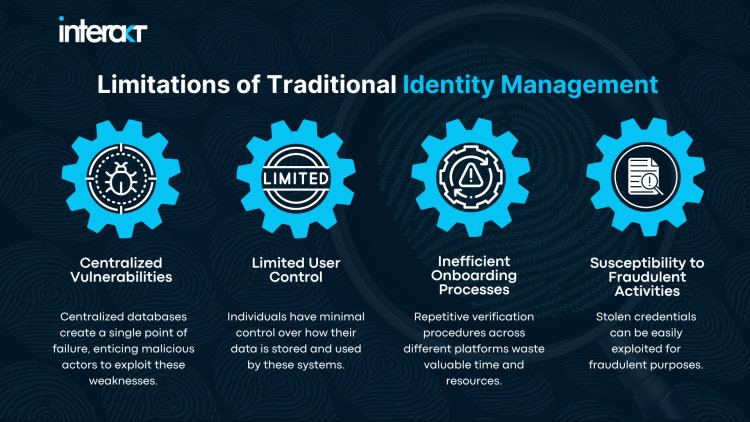
Blockchain: Revolutionizing Identity Management
Blockchain technology offers a decentralized solution, distributing identity data across a secure network of computers. This eliminates the central point of attack and makes data tampering nearly impossible.
Here's what sets blockchain apart:
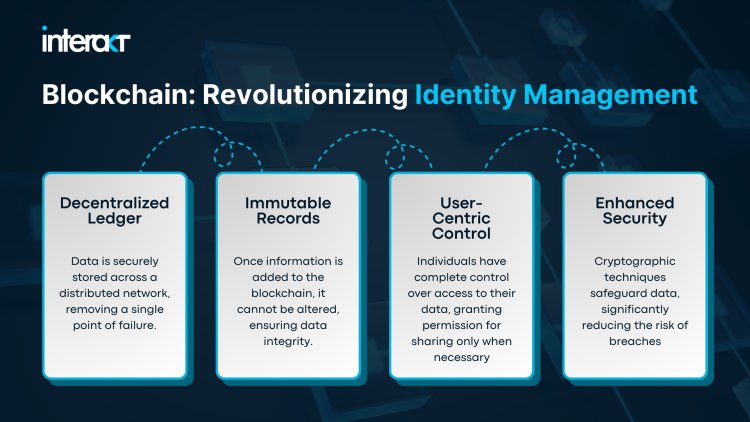
Blockchain-based identity management also introduces the concept of a trust score, which serves as an indicator of an individual's trustworthiness. Factors such as document uploads, information consistency, and regular system use contribute to the development of this score, streamlining identity validation processes for organizations.
Beyond Security: Benefits of Blockchain Identity Management
The advantages of blockchain identity management extend far beyond enhanced security. Here are some ways it can transform various sectors:
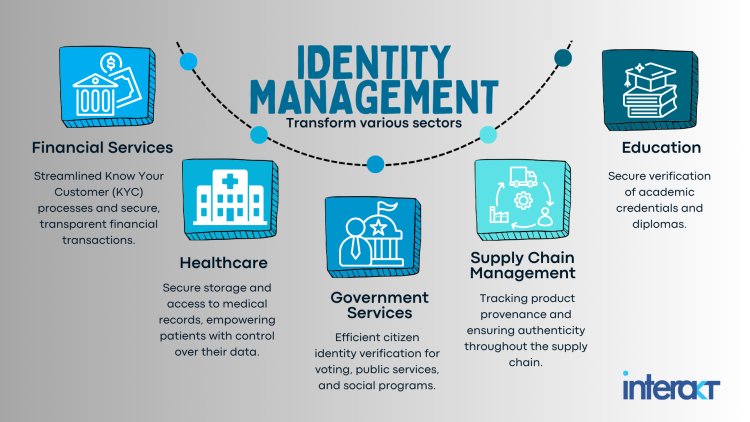
Emerging Trends
The landscape of blockchain identity management is constantly evolving. Here are some exciting trends shaping the future:
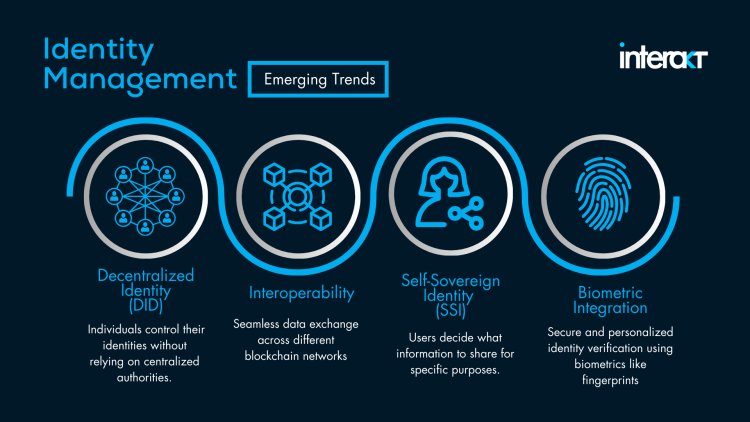
Whether you're a business seeking to implement decentralized identity frameworks or an individual looking for a more secure way to manage your data, Interakt can be your trusted partner in navigating this transformative journey. Ready to unlock the power of blockchain identity management for your organization or personal needs? Contact Interakt today and explore how their services can revolutionize your approach to identity management!











